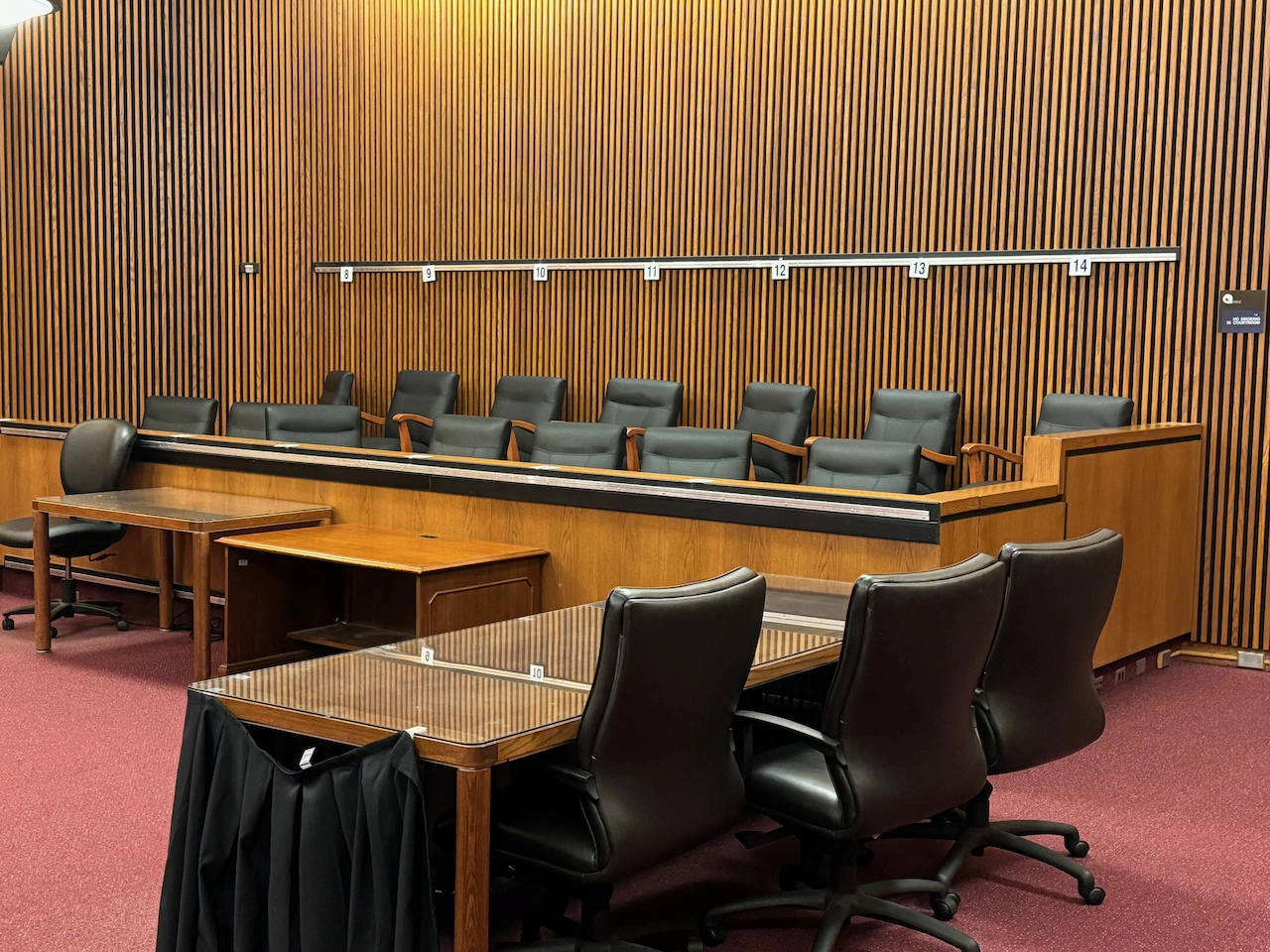Copyright cleveland.com

COLUMBUS, Ohio — A proposed bill that would give courts significantly more time to restore the mental competency of murder defendants is advancing through the Ohio Senate, despite sharp opposition from public defenders who say it’s based on a faulty premise and could strain the state’s mental health system. Senate Bill 295, sponsored by Sen. Nathan Manning, R–North Ridgeville, and Sen. Tom Patton, R–Strongsville, was favorably reported out of the Senate Judiciary Committee on Wednesday after three hearings. It now moves to the Senate Rules and Reference Committee, which will decide whether to send it to the full Senate for a vote. The bill was prompted by the case of De’Lawnte Hardy, a man suffering from schizophrenia who is accused of killing his grandmother and Cleveland police officer Jamieson Ritter last year. Hardy, who has pleaded not guilty, was found incompetent to stand trial and refused to take court-ordered medication for months, complicating efforts to restore his competency within the current one-year legal window. If passed, SB 295 would extend that period to five years for aggravated murder and murder cases. It would also pause the timeline during medication refusals and require state hospitals to notify courts within 14 days of such refusals. But public defenders say the bill attempts to fix a problem that doesn’t exist. “This is not a system that needs to be changed,” Cuyahoga County Public Defender Cullen Sweeney told the Judiciary Committee on Wednesday. “There is no loophole. There is no situation in which any defendant who is restored after that first-year window cannot still be prosecuted.” Sweeney argued that courts already retain jurisdiction over defendants like Hardy, and that the legal threshold to hold them is significantly lower than the burden required for a conviction. Ohio Public Defender Elizabeth Miller echoed those concerns in a statement to cleveland.com and The Plain Dealer, saying her office “strongly opposes” the bill. She emphasized that the judicial system worked as intended in Hardy’s case, with a judge ruling that his refusal to take medication did not count against the one-year timeline. “SB 295 is a hatchet where a scalpel is more appropriate,” Miller said, noting that while she supports provisions like automatic tolling and the 14-day reporting requirement, the five-year restoration period is excessive. Miller also cited data from the Ohio Department of Behavioral Health, which reports that its hospitals are operating at over 96% capacity, with about 90% of beds dedicated to forensic patients, to argue that the bill could worsen existing strains. “The General Assembly should not be adding further strain to the system in response to one extremely rare case,” she said. Zachary Miller, a legislative officer with the state public defender’s office, told lawmakers that extending the restoration window could infringe on the due process rights of defendants. “Five years is a very long time for the government to be able to hold you involuntarily if you haven’t even been convicted of a crime,” he said. Chris Julian, an assistant Cuyahoga County public defender who specializes in felony mental health cases, pushed back against the narrative that Hardy is trying to “run out the clock” to avoid prosecution. “These individuals don’t have the capacity to intentionally thwart the system,” Julian said. She explained that medication refusals often stem from delusions, mistrust, or a lack of insight into their illness. Julian also warned that the average wait time for a defendant to be transferred from the Cuyahoga County jail to a competency restoration facility is already 45 to 60 days, and that extending the restoration period could worsen delays. Last week, Cuyahoga County Prosecutor Michael O’Malley advocated for the bill before the Judiciary Committee, saying that the existing law isn’t fair to victims. His support was backed by Ohio Attorney General Dave Yost, who, in a letter to lawmakers, said the new bill will ensure defendants can’t “abuse the system.” O’Malley’s testimony was followed by an emotional plea from Ritter’s parents, who fear that the window to seek justice for their son is shrinking. “We urge this committee to act swiftly and decisively,” said Jonathan Ritter. “We’re not urging — we’re pleading with you at this point. Pleading. Our clock is running out.”



